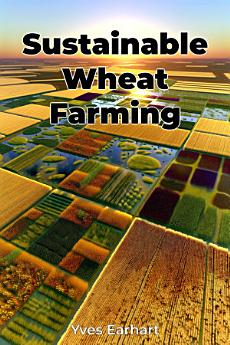Sustainable Wheat Farming
Acerca de este libro electrónico
The book progresses logically through three major sections, beginning with soil management techniques like cover cropping and organic matter maintenance. It then explores water efficiency strategies, including advanced irrigation methods and drought-resistant wheat varieties, before concluding with detailed approaches to enhancing biodiversity and natural pest management. Drawing from a decade of field studies across various climate zones, the content bridges the gap between traditional farming methods and modern ecological imperatives.
What sets this book apart is its practical, evidence-based approach, combining scientific rigor with real-world applications. Through detailed case studies from both small-scale organic farms and large commercial operations, readers gain actionable insights into implementing sustainable practices. The text addresses crucial concerns about transition costs and implementation timelines, making it particularly valuable for commercial farmers, agricultural consultants, and students seeking to understand the intersection of food security and environmental preservation.








